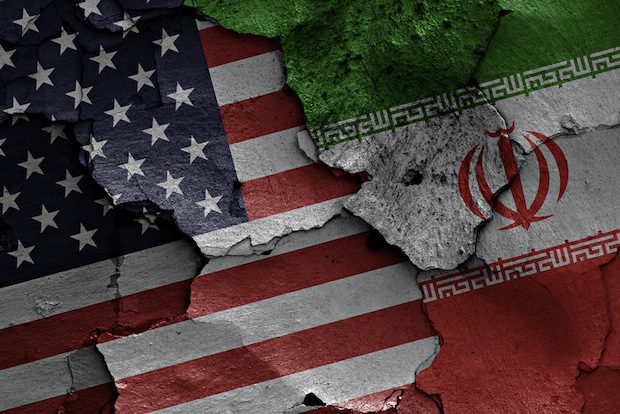The Sanctions Minefield

The Washington Post reports on the obstacles to humanitarian trade created by U.S. sanctions. The process of complying with regulations so burdensome that most firms won’t bother:
According to Mohsen Zarkesh, an OFAC sanctions attorney at the Price Benowitz law firm in Washington, the sanctions exemptions don’t guarantee an unimpeded flow of humanitarian goods to Iran. He said that the United States has created “a legal and business environment equivalent to walking through a compliance mine field.” [bold mine-DL]
“My experience shows that as the compliance burden of exports to Iran increases . . . companies of all sizes abstain from engaging in any form of trade with Iran,” Zarkesh said.
Sanctions advocates leave only the narrowest of gaps open to humanitarian trade, and they make it so onerous to bring goods through that gap that very few will accept the risk that comes with continuing to trade with the besieged country. The comparison with a minefield is apt. There may be a narrow, winding path through the minefield that will allow someone to traverse it safely, but the path is unmarked and the U.S. refuses to advise businesses on where to go. Given the obstacles put in their way, it is no wonder that most businesses would rather not take the chance of mistakenly treading on a mine in the form of legal penalties and fines. If the humanitarian exemptions to U.S. sanctions meant anything, they would be as broad as possible and the U.S. would make it easy for firms to use the approved channels, but the administration has done just the opposite. Even the newly-opened Swiss channel that was delayed for years by administration foot-dragging is limited because of the sheer amount of information that firms are expected to provide:
To use the Swiss humanitarian channel, for example, companies must provide extensive information to the Treasury Department every month about the Iranian beneficiaries of the goods. The documents must include, among other things, the Iranian companies’ business relationships, financial details and a written commitment from distributors that they will not allow the goods to be sold or resold to Iranian individuals or entities under sanction.
European officials have likened the reporting requirements “to a ‘fishing expedition’ for information about the commercial relationships with European and Iranian firms,” Batmanghelidj said.
All of this consumes resources that many firms don’t want to waste, and it takes time that the Iranian people can’t afford to lose. That was already true before the outbreak, and now the situation is even more serious. There is no question that sanctions are causing shortages of essential medicine and medical equipment:
Iranian medical workers and global public health experts say it is not possible to determine exactly how much U.S. sanctions have affected Iran’s capacity to fight a virus that by official counts has infected more than 35,000 Iranians and killed at least 2,500 — some estimates put the toll far higher — while spawning outbreaks in other countries. But they say it is clear that the Iranian health-care system is being deprived of equipment necessary to save lives and prevent wider infection.
“There are a lot of shortages now. . . . [Hospitals] do not have enough diagnostic kits or good quality scanners, and there is also a shortage of masks,” said Nouradin Pirmoazen, a thoracic surgeon and former lawmaker in Iran.
Pirmoazen, who now lives in Los Angeles, said that he is in regular contact with former colleagues and students at the Masih Daneshvari Hospital in Tehran, which is part of Iran’s National Research Institute of Tuberculosis and Lung Diseases.
“Medical staff who want a specific type of medicine or equipment are having difficulty transferring money outside of Iran due to the sanctions,” he said, adding that doctors and nurses at Masih Daneshvari have been overwhelmed by the crisis.
Sanctions block the transactions Iranian medical professionals need to make to procure essential goods for treating their patients and protecting themselves. Even when they can get some supplies through an approved channel, there won’t be enough of them, they will cost far more than they normally would, and it will take too long to get them. If time is of the essence in getting this outbreak under control, sanctions kill by imposing costly delays. Many Iranians suffering from the pandemic and other ailments will die because of the sanctions when they would have otherwise survived. This will happen in other sanctioned countries as well if sanctions continued to be enforced during this crisis. We can already see the life-threatening shortages of proper equipment in our own hospitals, and the U.S. doesn’t have to contend with any of the barriers created by sanctions. Now imagine the situation for the doctors and nurses in Iran that have to struggle against a horrifying outbreak with the added difficulty of being under siege.
Economic warfare is cruel and iniquitous at the best of times, and during a pandemic it is especially monstrous. For the sake of preserving innocent life and for the sake of bringing the pandemic under control, the economic wars have to end.
Comments